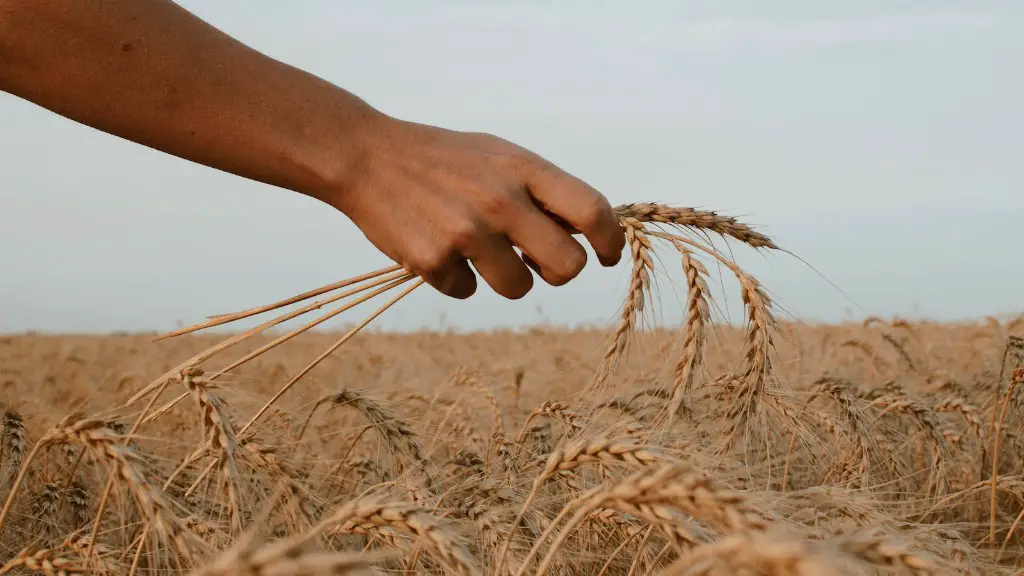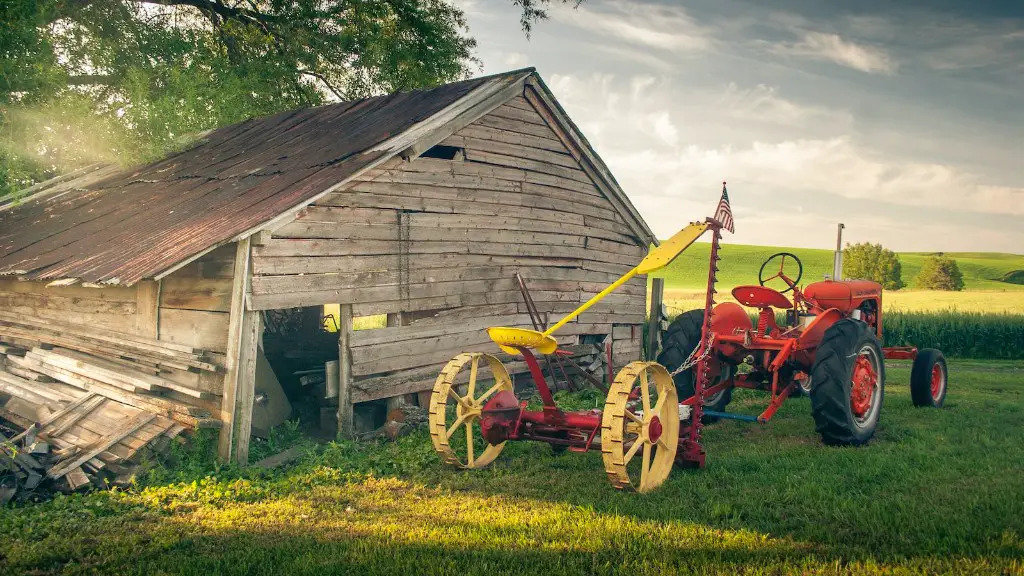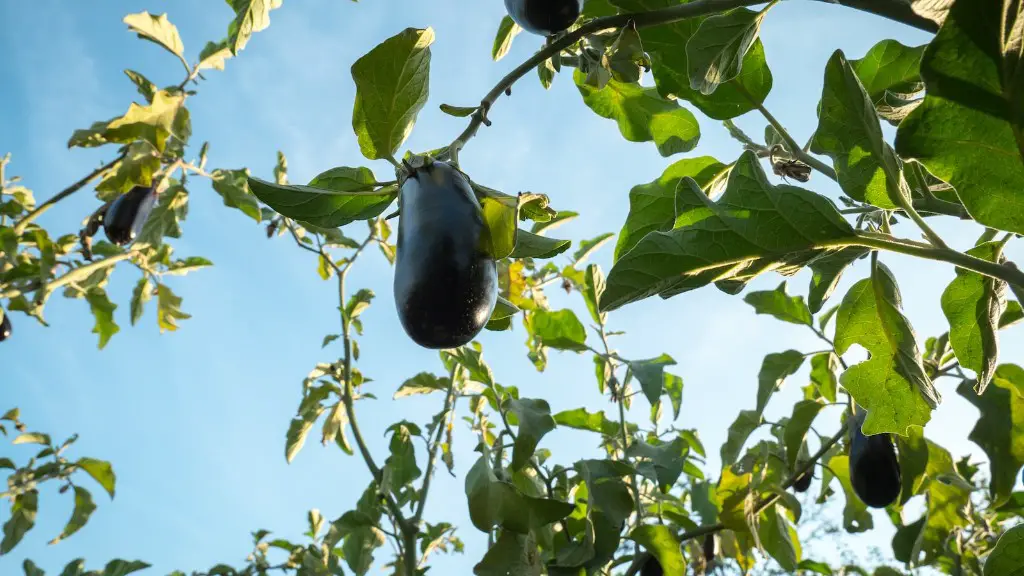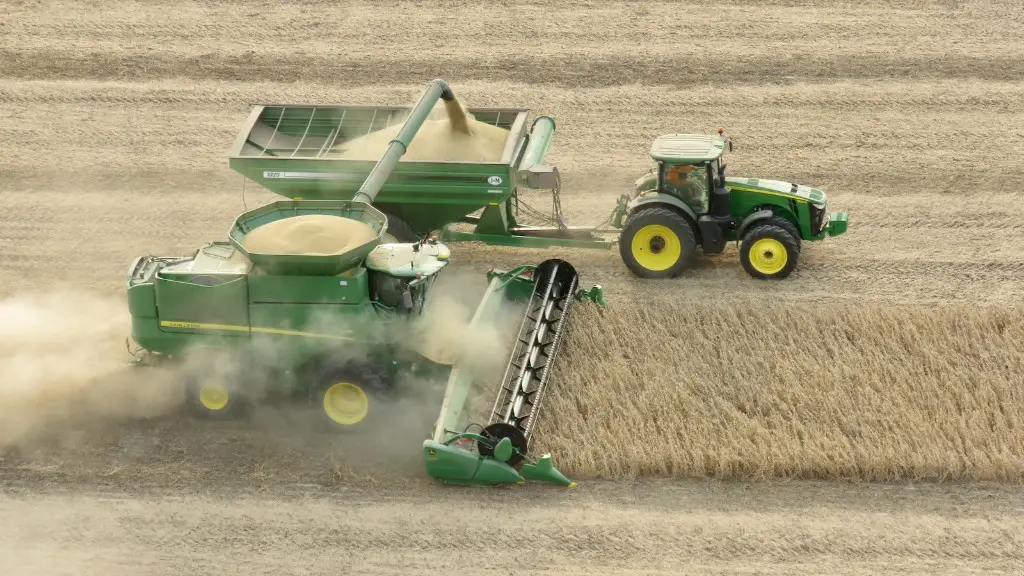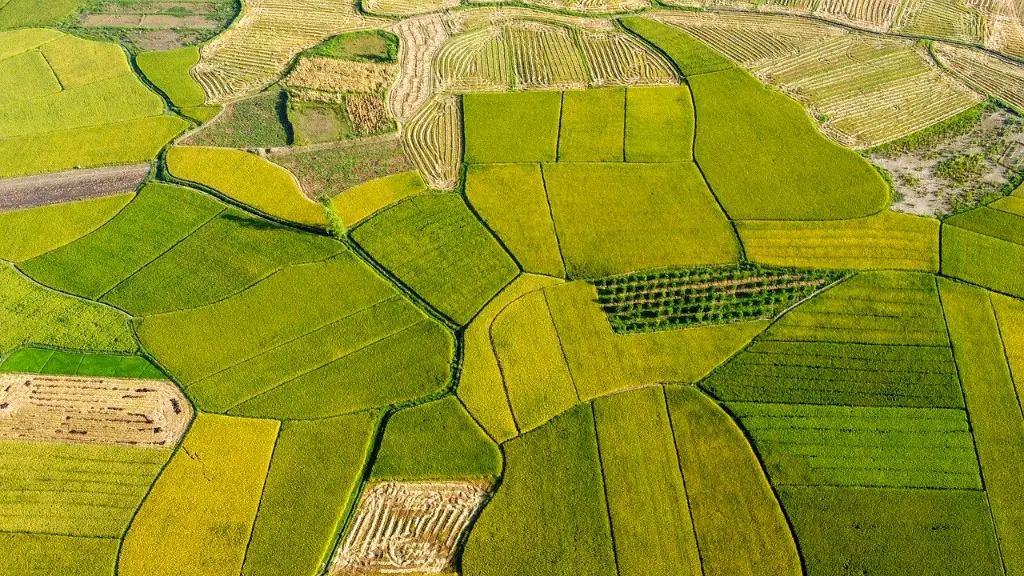Industrial agriculture is a term used to describe farming that incorporates industrial techniques. These techniques often include using large amounts of pesticides and chemical fertilizers, as well as mechanized equipment. Industrial agriculture is often criticized for its negative environmental impacts.
Industrial Agriculture is a form of farming that relies on heavy use of synthetic fertilizers, pesticides, herbicides, and genetically modified organisms. This form of agriculture has been criticized for its negative impact on the environment, human health, and animal welfare.
What is industrial agriculture in simple words?
Industrial agriculture is a type of farming that involves the large-scale production of crops and animals. This type of agriculture often uses chemical fertilizers on crops or the routine use of antibiotics in animals. Industrial agriculture can be harmful to the environment and the animals that are raised in these conditions.
Industrial agriculture is a method of farming that uses synthetic fertilizers, synthetic pesticides, and machinery. This type of agriculture is dependent on large investments in mechanized equipment powered mostly by fossil fuels.
What are some examples of industrial agriculture
It is no secret that the US diet is not the healthiest in the world. A large part of this is due to the fact that the majority of our food comes from industrial agriculture. This type of agriculture focuses on commodity crops like corn and soybeans, which are then used to create processed foods. These processed foods are often high in sugar, fat, and calories, and have little to no nutritional value. They are also the cause of serious health problems like obesity, diabetes, and heart disease. The cost of these health problems is enormous, both in terms of human suffering and in dollars. It is time for a change. We need to move away from industrial agriculture and towards a system that produces healthy, nutritious food.
Industrial agriculture is a term used to describe the industrialized production of livestock, poultry, fish, and crops. Intensive agriculture is a type of industrial agriculture that yields a large amount of output per acre through concentrated farming, but still only provides a subsistence living for farmers.
What is the purpose of industrial agriculture?
Industrial agriculture is a type of farming that uses modern technology and equipment to process meat, eggs, milk, crops, and other food items in a quick and efficient way. This type of agriculture reduces overhead expenses while earning more revenue and profits, which in turn lowers food costs.
Industrial agriculture is a type of farming that involves growing plants and raising animals at large scales. The goal of industrial agriculture is to maximize food production. To achieve this goal, farms rely on synthetic chemical inputs to boost productivity and mechanization of manual processes.
What are the benefits of industrial agriculture?
There are a few reasons why industrial farming is beneficial. One reason is that it increases food production. This is going to be important, especially as the world population continues to grow at a steady rate. Industrial farms can keep up production rates much easier than small rural farms that only distribute food locally.
Another reason is that industrial farms use less land than small farms. This is important because it helps to preserve our forests and other natural habitats. It also means that more food can be produced in a smaller area, which is important as the world population continues to grow.
Industrial farming is also more efficient than small-scale farming. This means that more food can be produced with fewer resources. This is important because it helps to conserve our limited resources and prevent pollution.
Overall, industrial farming has many benefits that make it a more efficient and sustainable way of producing food.
The large-scale, conventional farming system has been in place for many years and has been very successful in yielding high production levels. However, this system is now being questioned due to its contribution to climate change, pollution, and depletion of soil fertility. Many farmers are now looking for alternatives to this system that will be more sustainable and environmentally friendly.
What is the impact of industrial agriculture
The industrial agriculture system is not sustainable. It consumes fossil fuel, water, and topsoil at unsustainable rates. It contributes to numerous forms of environmental degradation, including air and water pollution, soil depletion, diminishing biodiversity, and fish die-offs.
The methods of industrial agriculture have contributed to increased productivity and efficiency in the agricultural sector. However, some of these methods have also raised concerns about their impact on the environment and human health.
What are the 4 types of agriculture?
There are four main branches of agriculture, each with their own focus and area of expertise. Livestock production deals with the raising and care of animals for food or other purposes. Crop production focuses on the growth and harvesting of plants for food, fuel, or other uses. Agricultural economics deals with the economic aspects of agriculture, including market trends and agricultural policy. Agricultural engineering deals with the design and implementation of agricultural equipment and systems.
The agricultural industry is very important to the state of Florida. It provides a variety of products and services that are essential to the state’s economy. The industry is also a major employer, providing jobs for many residents.
Is AP Human Geography A Hard AP
Overall, AP Human Geography is not too difficult of a class. However, the pass rate is lower than other AP classes, so students should make sure to study and prepare for tests in order to ensure success.
Industrial agriculture is a term used to describe farming that applies the techniques of mechanization and standardization. This type of agriculture has many benefits, including the development of farming from a simple method to an intensive one. Modern equipment, tools, structures and techniques are all used in industrial agriculture, making it a more efficient and productive way of farming.
Is AP Human Geography an easy ap?
AP Human Geography is widely recommended as an introductory-level AP course. However, students tend to regard the course content as “easy,” while the exam is actually quite difficult. Historically, the majority of students have earned the lowest possible score on this exam.
Modern industrial agriculture has had a profound impact on the way we grow food. It has increased yields of crops, making it possible to feed more people with less land. However, it has also had negative impacts, such as increasing our reliance on fossil fuels and causing environmental damage.
Conclusion
industrial agriculture is a type of farming that uses large machines to plant, grow, and harvest crops. Industrial agriculture relies heavily on synthetic fertilizers, pesticides, and herbicides to maintain high yields. This type of agriculture is typically characterized by large fields of single crops, such as corn or wheat.
The term industrial agriculture refers to a modern agricultural production system that involves the use of synthetic fertilizers, pesticides, genetically modified organisms, and intensive animal husbandry. This mode of agriculture is characterized by large-scale monoculture production, as well as heavy reliance on fossil fuels and mechanization. While industrial agriculture has helped to increase food production in many parts of the world, it has also been criticized for its negative environmental impacts, including soil degradation, water pollution, and the loss of biodiversity.
